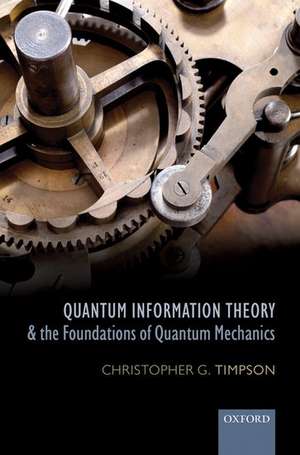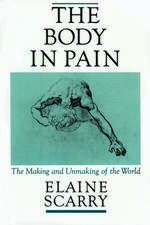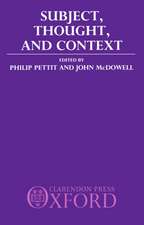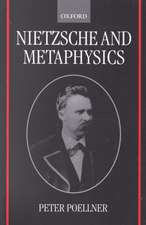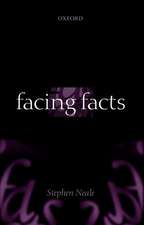Quantum Information Theory and the Foundations of Quantum Mechanics
Autor Christopher G. Timpsonen Limba Engleză Hardback – 25 apr 2013
| Toate formatele și edițiile | Preț | Express |
|---|---|---|
| Paperback (1) | 268.01 lei 31-37 zile | |
| OUP OXFORD – 3 dec 2015 | 268.01 lei 31-37 zile | |
| Hardback (1) | 629.75 lei 31-37 zile | |
| Oxford University Press – 25 apr 2013 | 629.75 lei 31-37 zile |
Preț: 629.75 lei
Preț vechi: 842.84 lei
-25% Nou
Puncte Express: 945
Preț estimativ în valută:
120.50€ • 126.15$ • 99.71£
120.50€ • 126.15$ • 99.71£
Carte tipărită la comandă
Livrare economică 26 martie-01 aprilie
Preluare comenzi: 021 569.72.76
Specificații
ISBN-13: 9780199296460
ISBN-10: 0199296464
Pagini: 308
Dimensiuni: 162 x 241 x 23 mm
Greutate: 0.64 kg
Editura: Oxford University Press
Colecția OUP Oxford
Locul publicării:Oxford, United Kingdom
ISBN-10: 0199296464
Pagini: 308
Dimensiuni: 162 x 241 x 23 mm
Greutate: 0.64 kg
Editura: Oxford University Press
Colecția OUP Oxford
Locul publicării:Oxford, United Kingdom
Recenzii
There are a lot of books on quantum information theory. But many of them have one good feature - a desire to teach. In contrast, this book aims to speak to the reader about the subject. This book is not a tutorial on quantum information theory or quantum mechanics. It's a nice and interesting introduction into stories about how scientists think about the result of their achievements.
Timpson's is an important and highly informative work that touches on significant elements of the philosophical critique of quantum information theory. It also addresses the best-known novel information-focused proto-interpretations of quantum mechanics. The book very clearly treats its subject matter and carefully lays out its territory at each stage. It is recommended for both philosophers of science and physicists with a strong interest in quantum information theory or the foundations of quantum theory.
This is a philosophy book that both physicists and philosophers would find interesting. Timpson presents the material well and does a very good job of addressing would-be detractors. He successfully presents a strong argument for the place of information in understanding the world.
For anyone interested in how quantum information theory can possibly help us understand the world, Timpsons book is essential reading. For no matter what particular area of quantum information theory one is interested in, one will find a related discussion in Timpsons book that demonstrates how to think clearly about information in that context, what the crucial issues are, and how to properly navigate them.
Timpson's is an important and highly informative work that touches on significant elements of the philosophical critique of quantum information theory. It also addresses the best-known novel information-focused proto-interpretations of quantum mechanics. The book very clearly treats its subject matter and carefully lays out its territory at each stage. It is recommended for both philosophers of science and physicists with a strong interest in quantum information theory or the foundations of quantum theory.
This is a philosophy book that both physicists and philosophers would find interesting. Timpson presents the material well and does a very good job of addressing would-be detractors. He successfully presents a strong argument for the place of information in understanding the world.
For anyone interested in how quantum information theory can possibly help us understand the world, Timpsons book is essential reading. For no matter what particular area of quantum information theory one is interested in, one will find a related discussion in Timpsons book that demonstrates how to think clearly about information in that context, what the crucial issues are, and how to properly navigate them.
Notă biografică
Christopher G. Timpson read Physics and Philosophy as an undergraduate at Queen's College, Oxford, before going on to take the BPhil and DPhil in philosophy there. His DPhil thesis concerned philosophical aspects of quantum information theory. He then taught for three years at the University of Leeds as a Lecturer in the Department of Philosophy and Division of History and Philosophy of Science, before taking up a Tutorial Fellowship and CUF Lectureship at Brasenose College, Oxford in 2007.
